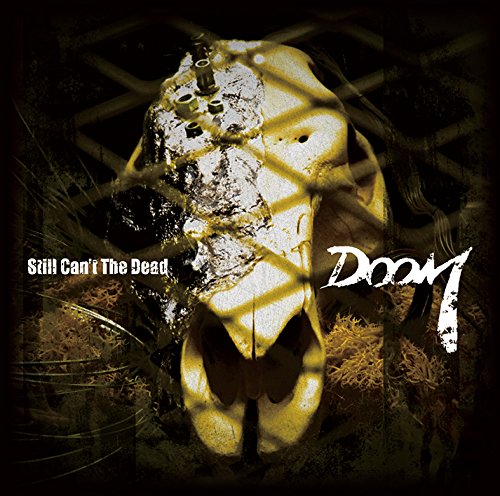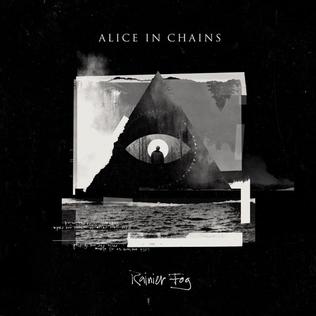Album of the Week 39-2018: Doom – Still Can’t The Dead

Some albums are much better than they are supposed to be. With the death of fretless bass wizard Koh Morota, Doom had lost a key member. In addition, their last album before disbanding, released seventeen years prior to ‘Still Can’t The Dead’, wasn’t all that good. And yet, ‘Still Can’t The Dead’ is almost as good as the band’s classic work. Frontman Takashi Fujita shook off most of his electronic and psychedelic tendencies and decided to make another unconventional, experimental thrash metal record. With maybe slightly more pronounced hardcore influences, but that might contribute to the album’s somewhat more contemporary nature.
First things first: new bassist Takatoshi Kodaira does a phenomenal job filling Morota’s shoes. He is not quite as good melodically, but it is obvious that he has studied Morota’s work closely. He even gets the chance to show off his virtuosity in pieces like the middle section of the otherwise bleak, doomy masterpiece ‘The Folly And Splice’, though overall, he is slightly less prominent in the mix than Morota was. Then again, that’s like comparing your winters to those on Antarctica. By employing a similarly styled bassist who apparently is a fan of Morota, Doom has all the ingredients for a classic Doom album.
And by almost any definition, it is. Sure, there are marginal stylistic differences with their earlier work, most prominently the fact that the jam-like sections are dropped in favor of tighter compositions. But overall, ‘Still Can’t The Dead’ leaves very little doubt that we are dealing with a Doom album. The electronically tinged overture ‘Introduce 99s Life… Getting Lies’ might be a little misleading, but it is followed by an array of crude thrash riffs that switch between brutal, uncomplicated hardcore picking to chord work that almost feel like bluesrock violently pushed through a meat grinder. And of course, Fujita’s trademark snarl is all over the record.
The songs on ‘Still Can’t The Dead’ are generally long, but feel shorter. The ‘Grin’ era Coroner-ish title track, for instance, rages on for over nine minutes and doesn’t have that many riffs, but manages to draw the listener in repeatedly by subtle touches, like verses that abruptly stop before they appear to be over and bass and guitar parts that constantly shift rhythms in relation to each other. ‘All Your Fears’ deserves to be long for maximum impact of the brooding danger in its mysterious atmosphere, while ‘All That Is Gone’ appears to be blunt at first, but reveals its subtleties through multiple listens. That middle section is uncharacteristically melodic and heartfelt. Fujita’s solo in particular.
Instrumental tracks ‘Ibiza’ and ‘Siesta…’ are fairly obvious tributes to the memory of Morota with Kodaira’s prominent melodic work on the fretless bass, but they work very well to offset the abrasive, almost noisy nature of the rest of the record. The latter half of ‘Siesta…’ has the whole band firing on all cylinders, but really, that could be said about the whole record. ‘Still Can’t The Dead’ is a great work of contemporary progressive thrash and despite the fact that it contains all the familiar Doom elements, it manages to be quite a surprising listen. The concrete urban jungle of ‘Incompetent…’ has become a debris-coated wasteland on ‘Still Can’t The Dead’, but that should hardly be a complaint.
Recommended tracks: ‘Still Can’t The Dead’, ‘The Folly And Splice’, ‘All That Is Gone’




